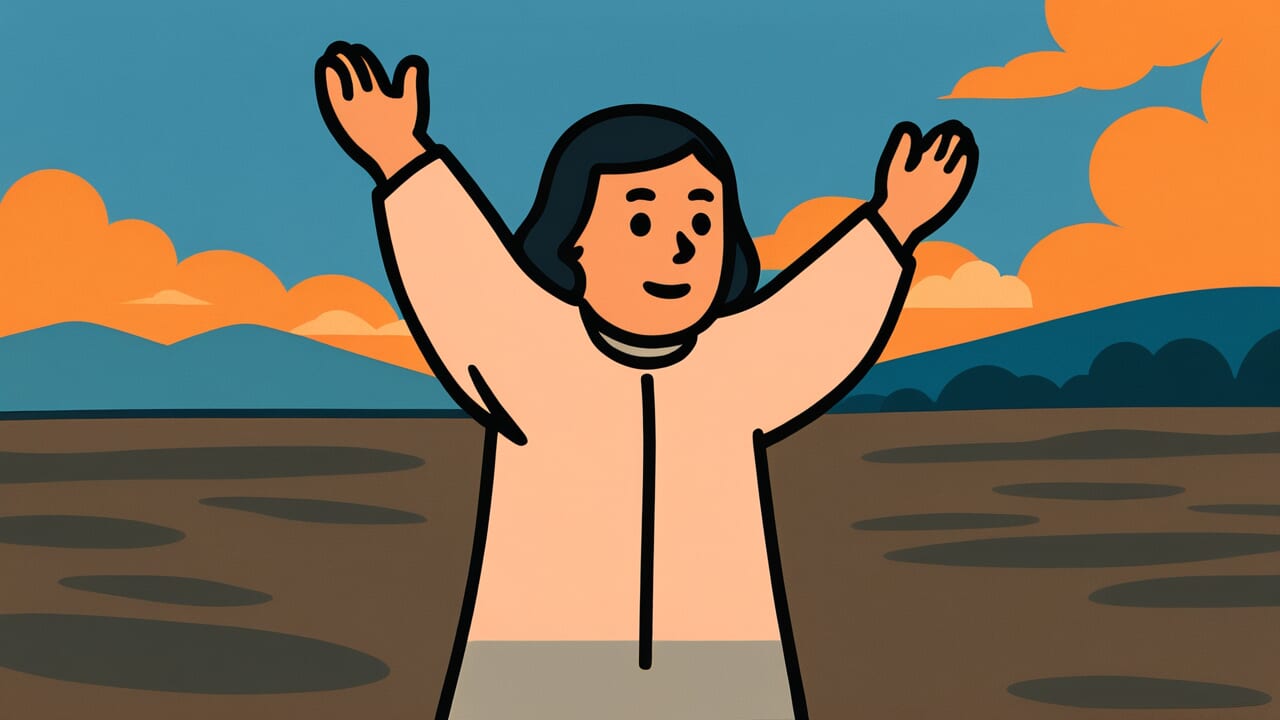How to Read “Heaven’s way has no parents”
tendō wa oya nashi
Meaning of “Heaven’s way has no parents”
“Heaven’s way has no parents” means that the laws of heaven are not influenced by human emotions and treat everyone fairly. No matter how powerful someone is or how much they are loved, they receive no special treatment before heaven’s laws.
This proverb is used when people face unfair treatment in human society or when wrongdoers seem to prosper. It expresses the belief that “heaven’s way alone remains just” despite the injustices we see around us.
People also use it to discipline themselves, showing the humble attitude that “heaven is watching.” Even today, this phrase expresses trust in justice.
Human judgment may err, but the laws of nature and cause-and-effect always work without fail.
Origin and Etymology
The exact origin of this proverb in historical texts is unclear. However, we can learn much from examining how the words are constructed.
“Tendō” means heaven’s way, referring to the universal laws that govern nature. Japanese people have long believed that heaven possesses an absolute order beyond human understanding.
The expression “oya nashi” (no parents) doesn’t mean “having no parents” in modern Japanese. We need to look at how the word “oya” (parent) was used in classical Japanese.
In old Japanese, “oya” meant not only blood relations but also “favoritism” or “special affection.” Therefore, “oya nashi” means showing no special treatment to anyone.
Heaven’s way works equally for everyone, whether they are powerful or common, good or evil. This philosophy developed within East Asian thought influenced by Confucianism and Buddhism.
It connects especially to the classical Chinese idea that “heaven’s net is wide but lets nothing slip through.” Even when injustice runs rampant in human society, heaven’s way remains absolutely fair. This proverb crystallizes people’s wishes and beliefs in ultimate justice.
Interesting Facts
During the Edo period, common people widely used the friendly term “Otentō-sama” (honorable sun) for “tendō.” They saw the sun as a symbol of heaven’s way.
Parents told children “Otentō-sama is watching” to teach them the importance of honesty.
There was reportedly a contrasting expression: “human ways have parents.” This emphasized that while favoritism and unfairness exist in human society, heaven’s way alone remains absolutely fair.
Usage Examples
- Even if dishonest people seem to get promoted, heaven’s way has no parents, so they will surely face consequences someday
- No matter how powerful someone is, heaven’s way has no parents, so wrongdoing will certainly bring divine punishment
Universal Wisdom
The proverb “Heaven’s way has no parents” has been passed down through generations because of the unfairness in human society. It reflects people’s earnest wish to still believe in justice.
We face unreasonable situations every day. Some people’s efforts go unrewarded while others succeed through dishonest methods. We sometimes see good people suffer while bad people prosper.
Human society inevitably contains imperfections. Power, wealth, and connections can distort judgments that should be fair.
However, humans cannot live by simply accepting such injustice. We need to believe that absolute fairness and unwavering justice exist somewhere to maintain peace of mind.
That’s why our ancestors found ultimate fairness in something beyond humans: “heaven’s way.”
This proverb expresses both humility that human judgment can err and hope that justice will ultimately prevail. When we feel like giving up on fairness, these words support us with the belief that “heaven alone is just.”
This isn’t mere consolation. It’s also powerful encouragement for people trying to live righteously.
When AI Hears This
Everywhere in the universe, entropy constantly increases. This is the absolute rule shown by the second law of thermodynamics. Ordered things inevitably move toward disorder, temperature differences equalize, and everything ultimately dissolves into the same state.
This law has no exceptions. Rich and poor, beautiful and ugly, all equally deteriorate and disperse in the flow of time.
Here lies the cold fairness of heaven’s way. Entropy increase shows no favoritism. No matter how sophisticated a machine is, it will break. No matter how perfect an organization is, it will fall into disorder.
Humans can temporarily create order through effort and ingenuity, but maintaining it requires constant energy input. Left alone, it will inevitably collapse. This is physical law, unchangeable by will or wishes.
What’s interesting is that the fairness this law shows differs from the kindness humans desire. Entropy acts equally on good and bad people. Those who worked hard and those who didn’t ultimately head toward the same heat death.
Heaven’s way has no parents perfectly describes this fundamental principle of the universe. Nature takes no one’s side and simply proceeds according to laws. Ancient people grasped this cold truth intuitively, without mathematical formulas.
Lessons for Today
This proverb teaches us two important attitudes for modern life.
First is the humility to accept human society’s imperfections. The systems and judgments we create inevitably contain bias. Demanding perfect fairness from humans can actually make us intolerant.
Acknowledging that people make mistakes is actually the first step toward a mature society.
Second is the courage to still live righteously. Even when unfairness runs rampant before your eyes, remember “Heaven’s way has no parents.”
Your honesty and integrity will never be wasted, even if not immediately rewarded. As a natural law, right actions inevitably lead to good results.
In modern society, social media constantly shows others’ successes. You may feel your efforts aren’t paying off. But there’s no need to rush.
Human evaluation is fickle and unfair, but the integrity you’ve accumulated is surely shaping who you are. Trust in heaven’s way and keep walking your path.



Comments